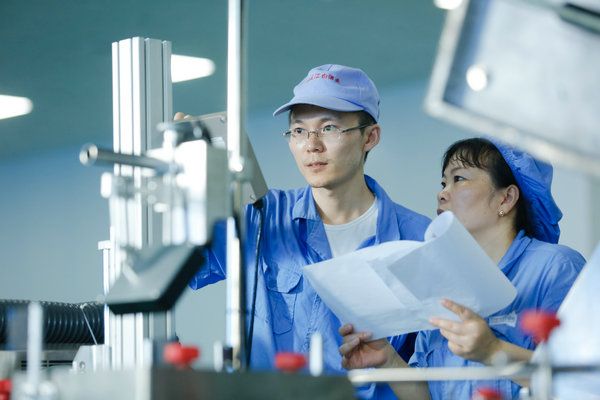 |
|
Lyuxi is the only one ancient winery in Baisha that has survived the passage of time.[Photo by Yang Feiyue/China Daily] |
Many of the steps in the winemaking process rely on experience.
"Microorganism fermentation is not mechanical and has to be tweaked a lot based on fluctuations in the weather and temperature," says Wang.
"So, the production process in summer is different from what we do in winter," he adds.
One needs to control the time taken to ensure consistent quality.
The winery now produces four tons of wine daily.
Winemaking at Lyuxi got a shot in the arm in 2016, when Jiangxiaobai, an emerging Chinese distillate spirit brand that has become a hit with young Chinese consumers, bought Lyuxi Winery out.
Since then, Jiangxiaobai has not only injected money into Lyuxi's traditional production and operations, but also taken other steps to revitalize the brand, like building a replica of Caofang street, to remind visitors what wine business looked like in the old days.
Separately, Jiangxiaobai also entered Lyuxi wines into international competitions like the Spirits Selection by Concours Mondialde Bruxelles in Belgium, where it received the gold prize in 2017.
These moves have put Lyuxi wine back on the map, and annual sales more than doubled last year compared with the year before.
"Our wine produced using ancient methods has gained ground since Jiangxiaobai's efforts, especially in Chongqing," says Wang.
Lyuxi Winery is one part of Jiangxiaobai's plan to create a liquor town and promote a wine culture in Baisha.
"Culture is key in the wine business," says Tao Shiquan, who founded Jiangxiaobai in 2012.
Meanwhile, Jiangxiaobai's wine is produced at Jiangji Distillery, a few minutes' drive from the Lyuxi Winery.
And the wine is made using a low-temperature and long-term fermentation method, which is an innovation based on the Lyuxi method.
The wine appeals to young consumers, most of whom are not fans of Chinese white liquor.